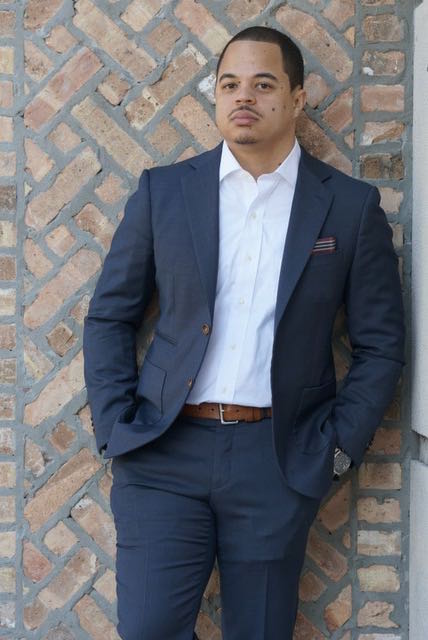In the fall of 2019 the Emory History Department welcomed four new faculty members. In the second of four posts coming in the next two weeks, the following profiles the work of Assistant Professor Carl Suddler. Suddler completed his PhD at Indiana University, Bloomington and was Assistant Professor of History at Florida Atlantic University before coming to Emory.

Tell us about the focus of your research and principal current project.
As a scholar of African American history whose research interests lie at the intersections of youth, race, and crime, I am committed to developing better understandings of the consequences of inequity in the United States. My research and teaching interests are related to twentieth-century U.S. history, African American urban history, histories of crime and punishment, the carceral state, sport history, and histories of childhood and youth. My first book, Presumed Criminal: Black Youth and the Justice System in Postwar New York (New York University Press, 2019) points to a critical shift in the carceral turn between the 1930s and 1960s when state responses to juvenile delinquency increasingly criminalized black youths and tethered their lives to a justice system that became less rehabilitative and more punitive.
In researching the criminalization of black youth for my first book, I was struck by how the state extended its surveillance powers through recreation and organized sports. As early as the late nineteenth century, there were calls from city authorities to increase recreational spaces and facilities to curb youth crime. It was assumed that to prevent delinquent behaviors, city authorities needed to better occupy youths’ idle time with structured activities that reinforced valuable life lessons, encouraged them to take instructions, and ordered them to follow rules. Thus, sports were used to distract youths from the social ills that city life presented––poor housing, disproportionate access to education, and inadequate healthcare––while providing an escape and promoting an ill-advised “way out” for its most vulnerable players.
In my current projects, I am examining these connections, including the unchallenged use of discretion in both sports and criminal justice, to bring together histories of the carceral state and sports studies.
Was there a particularly memorable moment from archival or field research that has had a lasting impact on your work or career?
I was in the throes of the archive for the first book when the Schomburg Center for Research and Black Culture in Harlem acquired James Baldwin’s personal papers. This was big for me, because Baldwin was engaged in some of the more critical moments of the New York City history that I touch on in the book and it allowed me to connect them to a historical giant.
What sort of courses – undergraduate or graduate – are you most excited to offer at Emory?
My research and scholarly insight relate directly to my teaching interests – so whenever, I have an opportunity to teach courses that engage various intersections of youth, race, and crime, I get excited. This semester, I’m looking forward to both undergraduate courses – a research seminar on sports in American history and culture and a postwar African American urban history course. In the Spring, I am planning to teach a graduate readings course on mass incarceration.
What drew you to Emory?
The students and the intellectual community drew me to Emory. When I was a postdoctoral fellow at the James Weldon Johnson Institute (jwji) for the Study of Race and Difference in AY2015–2016, I got a sneak peek about what it was like to be at Emory. I taught an undergraduate course, which allowed me to engage with students regularly –– and I was blown away by their level of dedication. I also engaged with various faculty and participated in a weekly colloquium with visiting scholars from across the country.